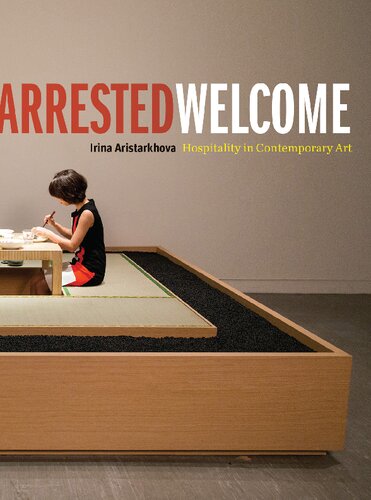

Most ebook files are in PDF format, so you can easily read them using various software such as Foxit Reader or directly on the Google Chrome browser.
Some ebook files are released by publishers in other formats such as .awz, .mobi, .epub, .fb2, etc. You may need to install specific software to read these formats on mobile/PC, such as Calibre.
Please read the tutorial at this link: https://ebookbell.com/faq
We offer FREE conversion to the popular formats you request; however, this may take some time. Therefore, right after payment, please email us, and we will try to provide the service as quickly as possible.
For some exceptional file formats or broken links (if any), please refrain from opening any disputes. Instead, email us first, and we will try to assist within a maximum of 6 hours.
EbookBell Team

5.0
18 reviewsInterpreting the meaning of hospitality in an unwelcoming political moment
Amid xenophobic challenges to America’s core value of welcoming the tired and the poor, Irina Aristarkhova calls for new forms of hospitality in her engagement with the works of eight international artists. In this first monograph on hospitality in contemporary art, Aristarkhova employs a feminist perspective to critically explore the artworks of Ana Prvacki, Faith Wilding, Lee Mingwei, Kathy High, Mithu Sen, Pippa Bacca, Silvia Moro, and Ken Aptekar and asks who, how, and what determines who is worthy of our welcome.
Spanning a diverse range of contemporary art practices, Arrested Welcome shows how artists challenge our existing notions of hospitality—culturally, philosophically, and politically. From the role of “microcourtesies” in social change to the portrayal of waiting as a feminist endeavor, Aristarkhova looks deeply into topics such as gender stereotypes of welcome, ways to reclaim civility, and the means by which guests (sometimes human, sometimes animal) push the limits of our hosting traditions.
Blending a feminist analysis of hospitality with in-depth case studies on how contemporary artists stimulate personal reflection and political engagement, Aristarkhova initiates these important conversations at a critical time of national and international hospitality crises.